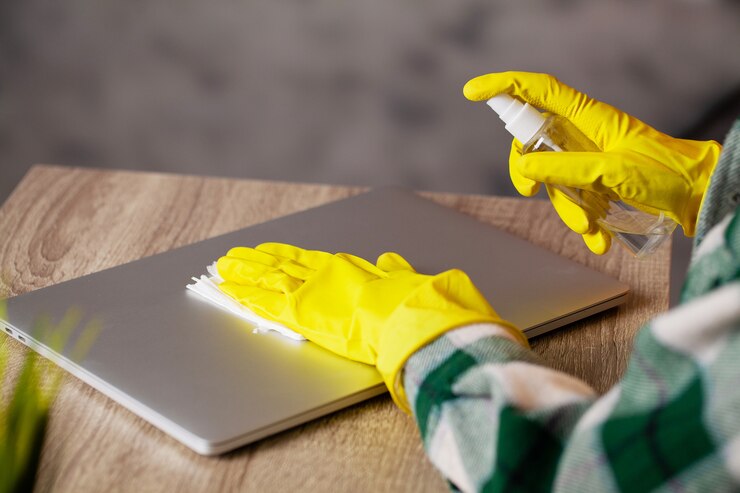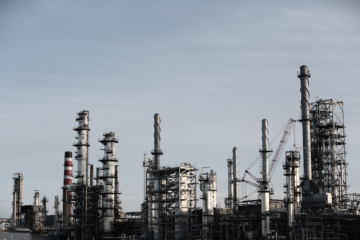Soft wash technology is a revolutionary approach to surface cleaning that utilizes low-pressure water delivery and specialized eco-friendly cleaning solutions. Unlike traditional pressure washing, which relies on high-pressure jets that can potentially damage delicate surfaces, soft wash gently removes dirt, grime, mold, and algae without compromising the structural integrity of the cleaned surfaces. This method is particularly effective for cleaning materials such as vinyl siding, stucco, wood, and asphalt shingles, where high-pressure washing could cause erosion or water penetration issues.
Benefits of Soft Wash Over Pressure Washing
The primary advantage of soft wash over pressure washing lies in its ability to deliver thorough cleaning without the risk of damage. Pressure washing can strip paint, etch surfaces, and even cause water intrusion into buildings if not used correctly. Soft wash, on the other hand, uses gentle, low-pressure techniques combined with biodegradable cleaning solutions that break down dirt and organic matter without aggressive force. This approach not only preserves the aesthetic appeal of surfaces but also extends their lifespan by preventing premature wear and tear.
Applications Across Surfaces
Residential Soft Washing
In residential settings, soft wash is invaluable for maintaining the exterior appearance and structural integrity of homes. It effectively cleans roofs, siding, gutters, decks, and fences, removing unsightly stains, moss, and algae buildup. Soft wash treatments not only enhance curb appeal but also contribute to better energy efficiency by eliminating biological growth that can trap heat or moisture.
Commercial and Industrial Uses
Commercial and industrial properties benefit significantly from soft wash solutions, particularly in maintaining large-scale buildings, parking structures, and retail facades. Soft wash ensures that businesses present a clean and professional image to customers while safeguarding exterior surfaces from damage. The gentle yet effective cleaning process is adaptable to various materials, including concrete, metal, brick, and glass, making it a versatile choice for property managers and facility maintenance teams.
Environmental and Safety Considerations
Eco-Friendly Cleaning Solutions
One of the standout features of soft wash technology is its environmental friendliness. The cleaning solutions used in soft wash are biodegradable and formulated to minimize chemical runoff into waterways. This eco-conscious approach not only protects local ecosystems but also aligns with sustainability goals increasingly prioritized by businesses and homeowners alike. By choosing soft wash over conventional cleaning methods, individuals contribute to reducing their environmental footprint while maintaining a clean and healthy living or working environment.
Safety Measures in Soft Washing
Safety is paramount in any cleaning operation, and soft wash techniques prioritize the protection of both property and personnel. Professional soft wash technicians undergo training to handle equipment safely and apply cleaning solutions effectively. They also adhere to industry standards and regulations to mitigate risks associated with chemical exposure and equipment operation. By employing these safety measures, soft wash providers ensure that cleaning projects are completed efficiently and without compromising the well-being of those involved.
Soft Wash Process Explained
Equipment and Techniques
The soft wash process begins with a comprehensive assessment of the surfaces to be cleaned. Specialized pumps and nozzles are then used to apply cleaning solutions at low pressure, ensuring even distribution and maximum effectiveness. The cleaning solutions used in soft wash treatments are tailored to break down dirt, mold, mildew, and other contaminants without causing harm to the underlying surface. After allowing the solution to dwell and penetrate the affected areas, the surfaces are gently rinsed with low-pressure water, leaving them clean and rejuvenated.
Steps Involved in Soft Washing
Soft washing typically involves several key steps to achieve optimal results:
- Surface Assessment: Inspection to identify areas requiring treatment and assess surface condition.
- Solution Application: Application of biodegradable cleaning solutions tailored to surface type and contaminants present.
- Dwell Time: Allowing the solution to penetrate and break down dirt, mold, and algae.
- Gentle Rinse: Using low-pressure water to rinse off residue and reveal clean surfaces.
Effectiveness on Different Surfaces
Cleaning Power on Roofing
Roofs are particularly susceptible to moss, algae, and lichen growth due to exposure to moisture and sunlight. Soft wash effectively removes these organic growths without damaging the roof’s protective layers. By preserving the integrity of roofing materials such as asphalt shingles and tile, soft wash helps extend their lifespan and maintain their reflective properties, contributing to energy efficiency in homes and commercial buildings.
Revitalizing Driveways and Walkways
Driveways and walkways endure heavy foot traffic and vehicular use, leading to dirt buildup, oil stains, and mold growth over time. Soft wash treatments effectively lift stains and eliminate biological contaminants, restoring the original appearance of concrete, pavers, and other hardscape surfaces. This revitalization not only enhances the curb appeal of properties but also improves safety by reducing slip hazards caused by slick surfaces.
Cost-Effectiveness and Long-Term Benefits
Economic Advantages of Soft Washing
Investing in regular soft wash maintenance proves cost-effective in the long run by preventing the need for premature replacements or extensive repairs. The relatively low cost of soft wash services compared to potential expenses associated with neglecting exterior maintenance makes it a prudent choice for property owners looking to preserve their investment value.
Maintenance Benefits for Property Owners
Property owners benefit from reduced maintenance efforts and costs associated with exterior cleaning. Soft wash treatments mitigate the growth of mold, algae, and other contaminants that can degrade surfaces over time. By incorporating soft wash into routine property care, owners can extend the lifespan of roofs, siding, and other exterior features while maintaining a clean and inviting environment.
Professional Soft Wash Services in NZ
Choosing the Right Soft Wash Provider
Selecting a reputable soft wash provider is crucial to achieving satisfactory results and ensuring the safety of your property. Look for companies that are licensed, insured, and certified in soft wash techniques. Reading customer reviews and obtaining referrals can also provide insight into the quality of service and customer satisfaction that a provider delivers.
Customer Satisfaction and Reviews
Positive feedback from previous clients underscores the reliability and effectiveness of professional soft wash services in NZ. Customer testimonials often highlight the thoroughness of cleaning, the professionalism of technicians, and the noticeable improvement in the appearance of treated surfaces. These endorsements can guide homeowners and businesses in making informed decisions when selecting a soft wash provider.
Growth and Adoption in New Zealand
Trends in Soft Washing Industry
The soft washing industry in New Zealand is experiencing significant growth, driven by increasing awareness of its benefits and the demand for sustainable cleaning solutions. As more property owners recognize the advantages of soft wash over traditional pressure washing, the market for eco-friendly cleaning services continues to expand.
Future Prospects and Innovations
Ongoing advancements in soft wash technology promise to enhance cleaning efficiency and expand its applications across various industries. Innovations in biodegradable cleaning solutions and equipment design aim to further improve cleaning results while minimizing environmental impact. The future of soft wash in NZ looks promising as it continues to evolve in response to market needs and technological advancements.
Comparative Analysis with Other Cleaning Methods
Soft Wash vs. Pressure Washing
Soft wash distinguishes itself from pressure washing by utilizing gentle water pressure and environmentally safe cleaning solutions. While pressure washing remains effective for certain applications, soft wash is preferred for cleaning delicate surfaces and achieving thorough results without causing damage or surface erosion.
Benefits of Soft Wash for Delicate Surfaces
The gentle approach of soft wash makes it suitable for cleaning delicate materials such as vinyl siding, stucco, and painted surfaces. By avoiding the abrasive force of high-pressure water jets, soft wash preserves the integrity and aesthetics of these materials while effectively removing contaminants and biological growth.
Case Studies and Success Stories
Real-Life Applications in NZ
Numerous case studies highlight the transformative impact of soft wash on properties throughout New Zealand. From restoring the luster of aging roofs to rejuvenating weathered building facades, soft wash has proven instrumental in enhancing property aesthetics and prolonging surface lifespan. These success stories demonstrate the versatility and effectiveness of soft wash across diverse environmental conditions and surface types.
Impact of Soft Wash on Property Maintenance
Property managers and homeowners alike benefit from incorporating soft wash into routine maintenance schedules. By preventing the accumulation of dirt, mold, and algae, soft wash reduces the frequency of costly repairs and prolongs the intervals between major cleaning projects. This proactive approach not only saves time and money but also ensures that properties maintain a clean and inviting appearance year-round.
Conclusion
In conclusion, soft wash technology represents a significant advancement in surface cleaning, offering a gentle yet effective solution for residential, commercial, and industrial properties in New Zealand. By embracing soft wash, property owners not only enhance the aesthetic appeal of their buildings but also contribute to environmental sustainability through responsible cleaning practices. As the demand for eco-friendly cleaning solutions continues to grow, soft wash stands out as a preferred choice for achieving superior cleaning results without compromising surface integrity.
FAQs about Soft Wash
What is soft wash technology?
Soft wash technology uses low-pressure water and eco-friendly solutions to safely clean surfaces.
How does soft wash differ from pressure washing?
Soft wash operates at lower pressures and uses specialized detergents for gentle cleaning.
Is soft wash safe for all types of surfaces?
Yes, soft wash is safe for roofs, siding, wood, and delicate materials like vinyl and painted surfaces.
What are the environmental benefits of soft washing?
Soft washing reduces chemical runoff and environmental impact with biodegradable solutions.
How often should soft washing be done?
Typically, soft washing is recommended annually or biannually for effective maintenance.
What are the typical costs of soft wash services in NZ?
Costs vary based on surface area and service provider; contact local companies for specific quotes.
Can soft washing prevent mold and algae growth?
Yes, regular soft washing treatments help prevent mold, algae, and other biological growths.
Where can I find professional soft wash services in NZ?
Professional soft wash services are available through certified providers and local cleaning companies across New Zealand.
Keep an eye for more news & updates on Hint Insider!




